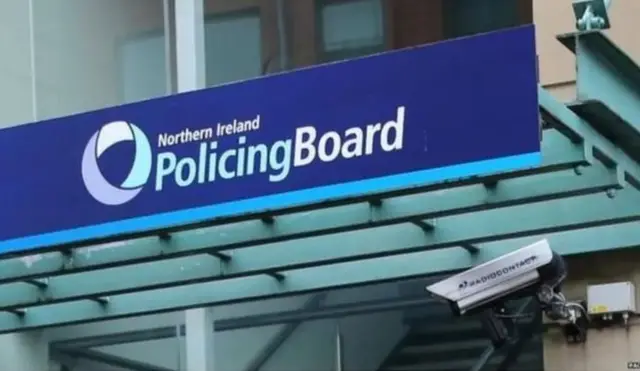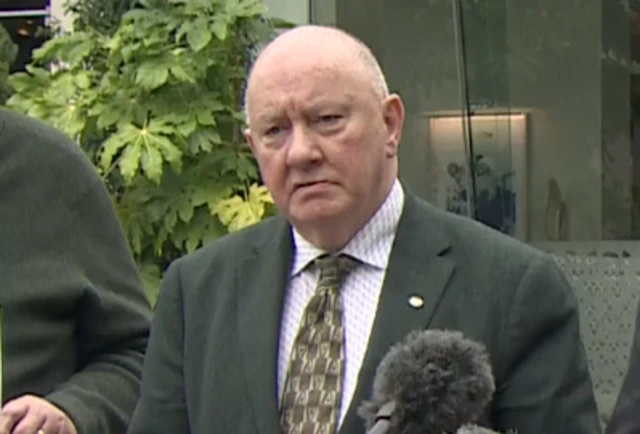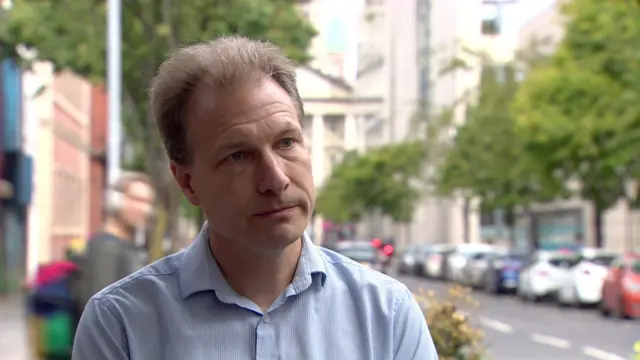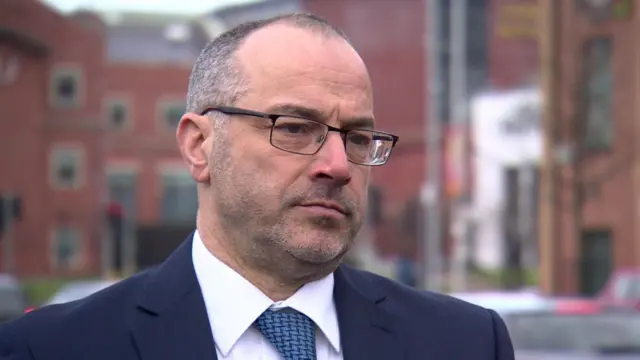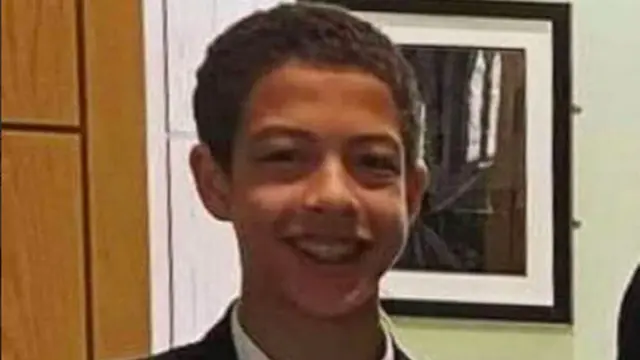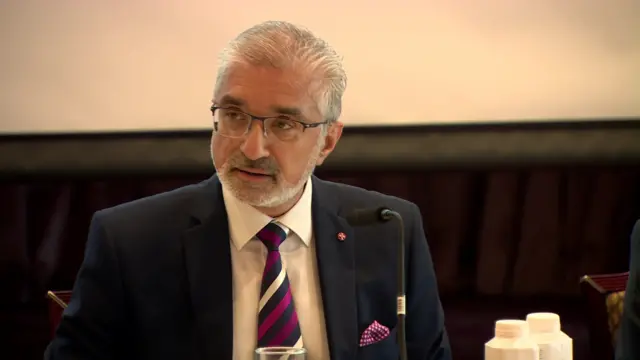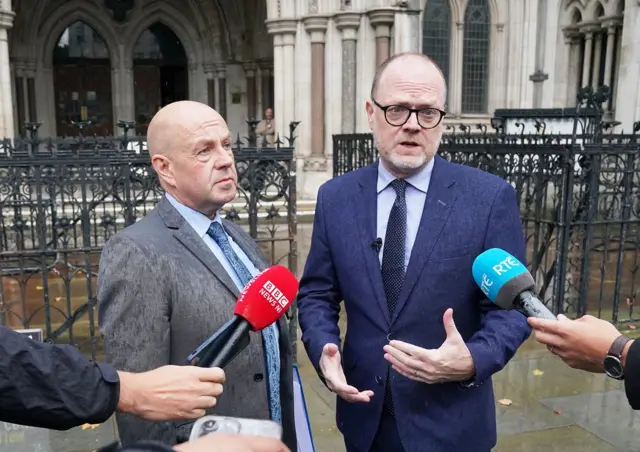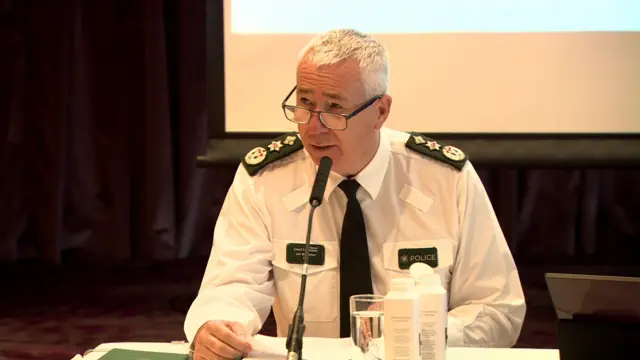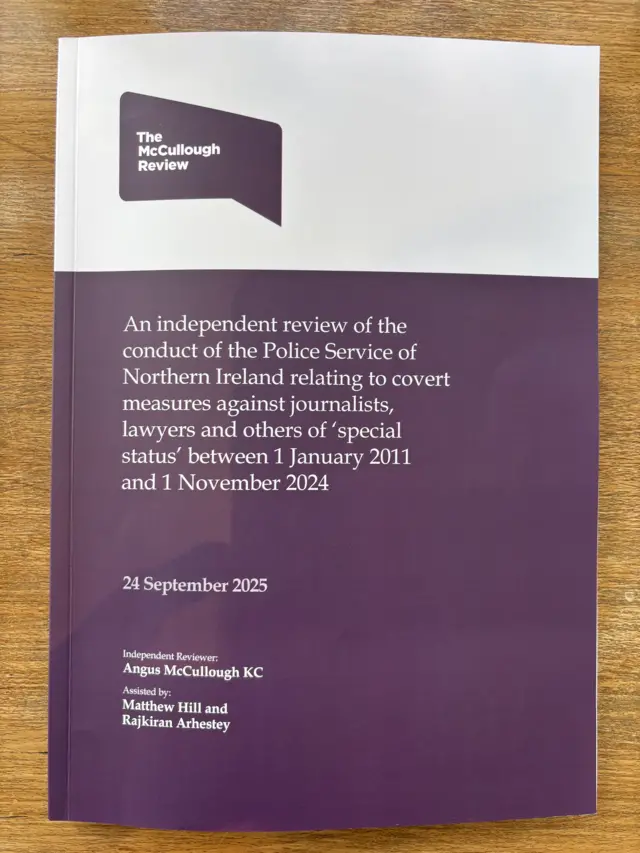Thank you and goodbyepublished at 14:43 BST 24 September
We are closing the live page - so here's a round up of the main points from today:
- A report reveals details about the use of surveillance against journalists by the Police Service of Northern Ireland
- It was compiled by the London-based barrister Angus McCullough KC, and he examined PSNI practices between 2011 and 2024 and was given full access to police records
- The report raises concerns about how the Police Service of Northern Ireland used journalists’ phone numbers to check for any leaks of information by its own officers or staff
- It also reveals there were 21 unlawful uses of covert powers to attempt to uncover reporters’ sources – double the figure previously disclosed by the PSNI
- Angus McCullough KC, says he found “no basis for concerns that PSNI surveillance of journalists or lawyers is widespread or systemic”
- Journalists Barry McCaffrey and Trevor Birney, who took legal action after a court found they had been unlawfully spied upon in an attempt to uncover sources, say the report is "the chief constable's version of events"
- PSNI Chief Constable Jon Boutcher accepts the report recommendations and apologises to Mr Birney and Mr McCaffrey, saying that although they got it wrong with their case it doesn't mean there is widespread abuse of covert powers
- Journalist Donal MacIntyre says the report raises "grave concerns" about the PSNI's "intrusion" into his work examining the disappearance and death of Noah Donahoe
This live page was written by Eimear Flanagan and Holly Fleck.
Thank you for joining us, goodbye.
